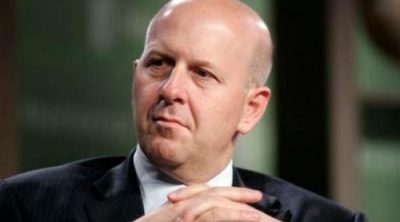“We Want Goldman Sachs Here”: This Is Malaysia’s Playbook For Prosecuting 1MDB Case

“Bring me Goldman Sachs!”
As outlandish as it might sound, Malaysian authorities are in the process of dragging the bank – or at least, some of its employees and subsidiaries – to Malaysia to face criminal charges filed against subsidiaries of the bank, as well as two senior bankers (who have also been indicted in the US), over charges alleging that the bank lied in its bond covenants with the intention of misleading investors in the three bond issuances it handled for 1MDB, and that Goldman knew corrupt Malaysian officials were preparing to loot 1MDB, the sovereign wealth fund at the center of one of history’s largest money laundering scandals, but chose to pursue the deals anyway.
In a guide to how the criminal charges filed yesterday against three subsidiaries of the bank and two of its employees, Bloomberg explained that Malaysian prosecutor M Kurup, who has been tasked with overseeing the case, isn’t playing around. “We want Goldman Sachs here,” he said.
Malaysian trials are similar to the English common law system (upon which they are based):
Criminal court proceedings are public and open to all, barring exceptions made by a judge or a court gag order. (Najib’s lawyers have sought such an order for his case to prevent a “trial by media.”) Malaysia’s legal system won’t be altogether alien to western companies and lawyers, since it’s fashioned on English common law. (Malaysia gained independence from Britain in the 1950s.) So there’s a presumption of innocence for defendants and a requirement by prosecutors to prove a case beyond reasonable doubt. Goldman’s cases would be tried by a judge, highlighting one difference from English law: Malaysia scrapped juries in 1995. The seriousness of the charges — which carry fines for businesses and jail terms of up to 10 years and fines for individuals — means defendants are required to attend. A trial might be delayed or lengthened if the prosecution attempts to subpoena overseas-based personnel. “We want Goldman Sachs here,” said Malaysia’s prosecutor M Kurup.
The bank will be given the opportunity to make its defense – namely, that it was misled by corrupt Malaysian officials.
Goldman said the charges came without a chance for the firm to provide its view. “Certain members of the former Malaysian government and 1MDB lied to Goldman Sachs, outside counsel and others about the use of proceeds from these transactions,” the bank said in a statement. “1MDB, whose CEO and board reported directly to the prime minister at the time, also provided written assurances to Goldman Sachs for each transaction that no intermediaries were involved.” According to Nizam Ismail, a partner at RHTLaw Taylor Wessing LLP in Singapore, a criminal conviction against one or more Goldman units could “affect their status as fit and proper persons” and impact their standings as licensed entities. “Regulators that are regulating Goldman entities worldwide will be watching developments in Malaysia closely,” he said. In the U.S., criminal convictions against banks used to be considered a death sentence, but they’ve become common-place after a flurry of currency-rigging cases.
But perhaps the most concerning aspect of this criminal case is the possible culpability of senior Goldman executives, including CEO David Solomon and CFO Stephen Scherr, both of whom were involved with the committees of senior partners who signed off on the deal. Unlike previous Goldman scandals, 1MDB is unique in that it originated with Goldman’s investment bank – not its trading desk, which is notorious for ripping off the faces of clients, according to CNBC.
“Anyone who’s been there a long time knows you can’t do big things without senior people knowing, period,” said one former Goldman employee, who spoke on condition of anonymity because he still has dealings with the bank. “No matter how senior you are, there’s always somebody above you. So a lot of people had to decide they were comfortable committing billions of dollars to this.”
Goldman has argued that it couldn’t have known that corrupt Malaysian financier Jho Low was planning to plunder 1MDB (DOJ officials allege $4.5 billion was diverted into slush funds and used to pay bribes). But it’s becoming increasingly clear to all that the bank knew the deals – which generated a staggering $600 million in fees (on $6.5 billion in business) due to the bank’s need to hold the bonds on its books instead of immediately pawning them off on investors. The bank said 1MDB didn’t care about the higher fees because it wanted the capital “right away”. That this also didn’t raise red flags doesn’t reflect well on Goldman’s compliance systems, which current Malaysian Prime Minister Mahathir Mohamed joked “don’t work very well.”
The upshot: As the DOJ probe ramps up and governments from Switzerland and Singapore pursue prosecutions of their own related to the 1MDB fraud, Goldman won’t be able to simply write off the Malaysians as a side show to the maneuvering of prosecutors in the US. And that probably doesn’t bode well for Goldman’s battered share price.

